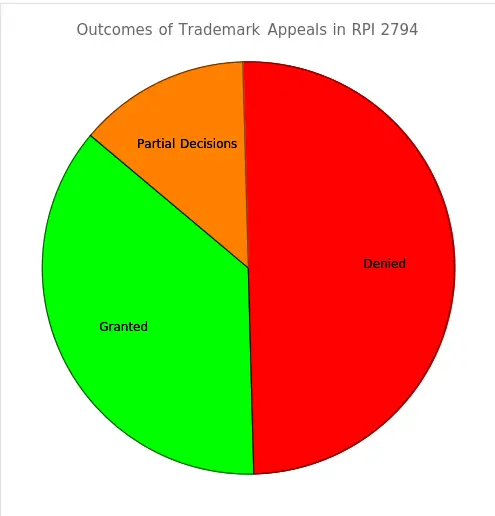Navigating Trademark Disputes in Brazil: A Strategic and Economic Perspective
Prepared by: Marcus Julius Zanon – Brazilian IP Attorney-At-Law, Consultant & Registered Patent Agent
Executive Summary
This report provides an in-depth examination of trademark appeals (recursos) and nullity actions from RPI 2794, reflecting the vibrant activity and challenges within Brazil’s trademark dispute resolution framework. By analyzing these cases, the report aims to highlight common issues, trends, and strategic recommendations for navigating the complex landscape of trademark disputes in Brazil effectively.
Introduction
In the complex field of trademark litigation, understanding the nuances of appeals and nullity actions is crucial for effective intellectual property management. This analysis covers the documented cases in RPI 2794, focusing on the dynamics and outcomes of these legal actions to offer stakeholders actionable insights and strategic guidance.
Trademark Appeals Analysis
Common Grounds for Appeals
- Similarity to Existing Trademarks: Appeals often arise from claims that a newly registered trademark is too similar to an existing one, potentially causing consumer confusion.
- Non-compliance with Formal Requirements: Some appeals cite failures to comply with the procedural or formal requirements of the trademark registration process.
- Challenges Based on Prior Rights: Appeals may also be based on the assertion of prior rights, including earlier trademark registrations or well-known marks.
Outcomes of Appeals
- Appeals Granted: Successful appeals result in the cancellation or modification of the original trademark registration.
- Appeals Denied: In these cases, the original registration is upheld against the appeal.
- Partial Decisions: Some appeals lead to partial modifications of the trademark registrations, accommodating certain aspects of the challenge while rejecting others.
Trademark Nullity Analysis
Common Grounds for Nullity Actions
- Similarity to Existing Trademarks: Actions often challenge registrations based on their similarity to existing trademarks.
- Non-compliance with Formal Requirements: Citing errors or omissions in the registration process.
- Based on Prior Rights: Invoking earlier rights that may have been overlooked during the registration process.
Outcomes of Nullity Actions
- Actions Granted: These lead to the cancellation of the trademark.
- Actions Denied: The trademark’s registration remains valid.
- Partial Decisions: Modifications are made to the trademark’s registration based on the action’s merits.
Strategic Recommendations
For Businesses
- Proactive Trademark Management: Regularly review and update trademark portfolios to ensure compliance with formal requirements and mitigate risks of nullity and appeal actions. Engage in comprehensive trademark searches and analysis prior to filing to identify potential conflicts and avoid future disputes.
- Due Diligence: Conduct thorough due diligence before filing for trademarks to avoid conflicts with existing marks and reduce the likelihood of nullity and appeal actions. Monitor newly filed trademarks to proactively challenge potential infringements early in the registration process.
- Legal Consultation: Engage with IP attorneys to navigate the complexities of trademark registration and litigation effectively. Develop a strategic approach to handle nullity and appeal actions, including preparation of robust evidence and arguments to support trademark validity.
For Investors
- Risk Assessment: Evaluate the trademark litigation landscape as part of the due diligence process to assess potential risks associated with IP investments. Identify companies with a history of successful trademark defense as lower risk investments.
- Strategic Investments: Invest in companies with strong trademark portfolios and proactive IP management practices to ensure long-term brand security. Consider the potential impact of trademark disputes on brand value and market position when making investment decisions.
For Policymakers
- Streamlining Processes: Implement policies to streamline trademark registration and nullity/appeal processes, reducing the backlog and improving the efficiency of IP administration. Enhance the transparency and predictability of the nullity and appeal decision-making process to foster a stable IP environment.
- Awareness Campaigns: Launch awareness campaigns to educate businesses about the importance of compliance with trademark regulations and best practices in IP management. Provide resources and training to help businesses, especially SMEs, navigate the trademark registration and litigation processes.
Conclusion
The detailed analysis of trademark nullity and appeal actions in RPI 2794 provides valuable insights into the common grounds for disputes, their outcomes, and the strategic implications for businesses, investors, and policymakers. By understanding the trends and challenges in the trademark litigation landscape, stakeholders can better navigate the complexities of intellectual property management in Brazil.
